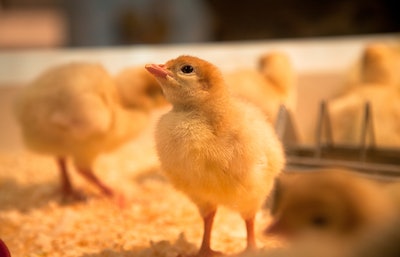
The European Commission is considering an end to the culling of male layer chicks across the European Union (EU), following in the footsteps of France and Germany.
There would appear to be growing support for the change among EU but, ever mindful of not being put at a competitive disadvantage and seeing egg production move outside the bloc, there have been calls for the ban to be applied to all egg-containing products on the European market, including imported ones.
The culling of male layer chicks stopped in Germany at the start of 2022 and must end in France before the end of the year. The two countries account for 28% of the EU’s egg production, so it is perhaps little surprise that they don’t want to see their industries undercut by other EU producers not subject to the same burdens and costs.
Proposal within 12 months
The proposal to ban the practice was announced by the EU’s Food Safety Commissioner Stella Kyriakides, according to media network EURACTIV. It could come as early as late next year, as part of the EU’s current overhaul of animal welfare legislation, due for completion by the end of 2023.
The commissioner made the announcement in response to a note table by France and Germany, with the support of seven other EU Member States, including Austria and Luxembourg, which have also outlawed the culling of male layer chicks.
The E.U. is home to 276 million laying hens, meaning that the industry will need to make significant investment should the ban be adopted, and some Member States have called for caution.
While they welcome the introduction of technologies to determine the sex of chicks in ovo, they fear that adopting these technologies would be too expensive for their local industries.
There are concerns that this expense could result in in egg production moving to lower cost countries. Unsurprisingly, some Member States are calling for ban to applied to imported eggs and egg products. In response to the proposal for a ban, a majority of Member States called for a thorough impact assessment to be conducted.
These worries echo those of the German industry which, when legislation was applied at national level, called for all EU producers to be subject to the same restriction.


















